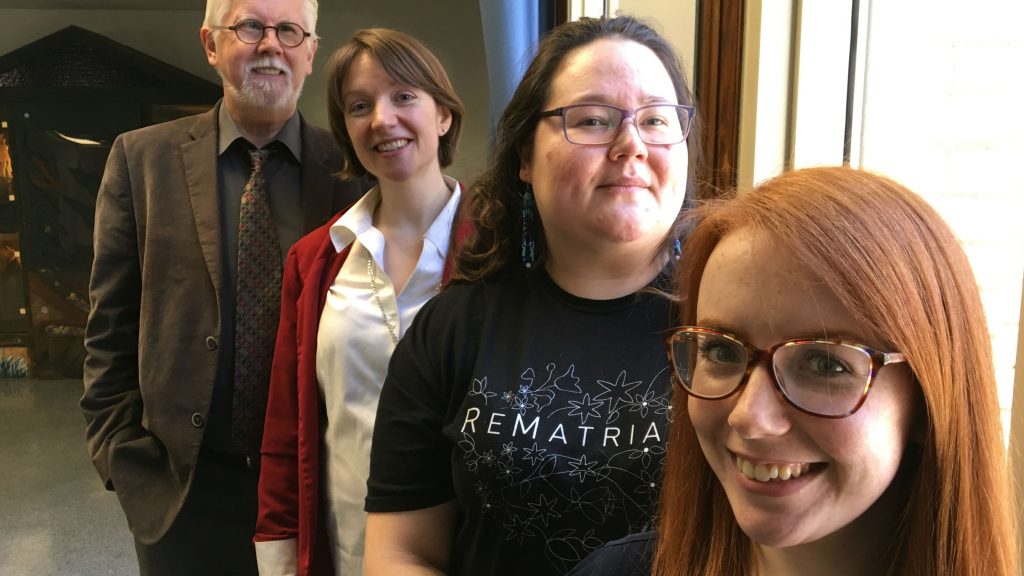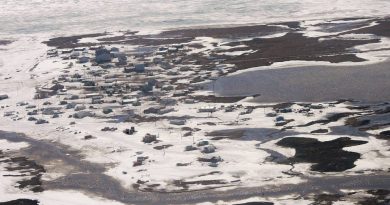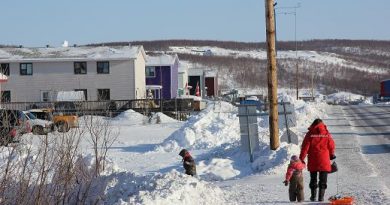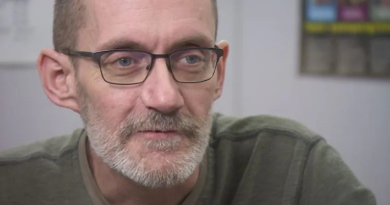What can the Indigenous, Irish language revival movements learn from each other?

For most people, a panel on the Irish-language revival movement, probably wouldn’t be top-of-mind at a First Peoples’ conference, but for Tiawentí:non Canadian, the decision was a no-brainer.
Canadian was a panel organizer at First Peoples’ Week at Dawson College that ran from April 1-5, an event set up to showcase everything from Inuit, First Nations and Métis culture and food, to outdoor survival workshops, discussions on climate change and language preservation.
Canadian said reflecting on the successes and stumbles in reversing the decline of Irish can offer important points of reflection for Indigenous language revival movements in Canada.
“I took an Irish performance studies with (associate professor) Emer O’Toole at Concordia University (in Montreal), and I couldn’t believe how much the colonialism of Ireland and the loss of language mirrored the colonialism and loss of language in my community,” said Canadian, coordinator of Dawson College’s First Peoples’ Centre, and a member of the Kanienkehaka (Mohawk) First Nation.
When policy isn’t enough
In Canada, a country of approximately 37 million people, English and French are the official languages. Around 260,550 people report being able to speak an Indigenous language.
More than 70 Indigenous languages are spoken in Canada according to the 2016 Canadian census.
Some Indigenous language families have thousands of speakers like Algonquian (175,825 speakers) and Inuit (42,065 speakers). Others are in danger of extinction having only several dozens of speakers like Tlingit (225 speakers) and Kutenai (170 speakers).
In Ireland, a country of approximately 4.7 million, 73,803 people report speaking Irish daily outside of the school system in the 2016 national census, so only 1.7 per cent of the population over three years old.
UNESCO lists Irish as “definitely endangered.”
In the Thursday Dawson College panel titled “The Revival of the Irish Language: Successes and Challenges,” Irish language and culture teacher Emer Nic Labhraí said language policy needs to be properly financed to make a difference, saying EU minority language funding has made a big difference in Ireland.
“Policy is not enough,” Nic Labhraí said. “Like (as is sometimes the case in Canada) we in Ireland had wonderful policy on paper, but it wasn’t resourced. The EU has really helped on that point.”
Decolonization
One of biggest hurdles to reversing language loss in Canada and Ireland is undoing the negative attitudes the colonial education systems passed on from generation to generation, the panel discussion heard.
In Canada, residential schools were set up to forcibly assimilate Indigenous people into Canada’s dominant culture. Children were often punished and physically abused for speaking Indigenous languages.
In Ireland, the British school system also sought to assimilate Irish children into English culture. Children were given tally sticks that were notched up during the day each time they spoke Irish. At the end of the day they were beaten one time for each notch.
“People call us anglophones, but we are not,” says Gearóid Ó hAllmhuráin, a professor at Concordia University’s School of Irish Studies, and one of the speakers on the panel. “We speak a language that was imposed on us.”
“It is so internalized that the English and language and culture was seen as superior,” Nic Labhrai said. “That still has to be transcended.”
Write to Eilís Quinn at eilis.quinn(at)cbc.ca
Related stories from around the North:
Canada: Nunavut Tunngavik Inc. joins Inuit orgs across Canada in slamming Indigenous language bill, Eye on the Arctic
Finland: Budget cuts threaten international Sámi language cooperation, Yle News
Iceland: Can environmental diplomacy save Arctic languages?, Blog by Takeshi Kaji
Russia: Sami languages disappear, The Independent Barents Observer
United States: Alaskan Inuit dialect added to Facebook’s Translate app, CBC News



